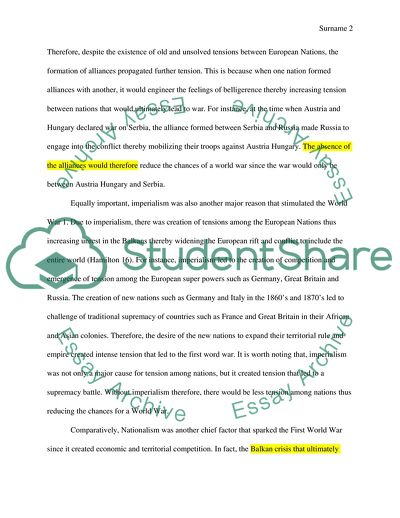The Emergence of International Alliances, Nationalism, and Imperialism Term Paper. https://studentshare.org/history/1853607-ww1
The Emergence of International Alliances, Nationalism, and Imperialism Term Paper. https://studentshare.org/history/1853607-ww1.


